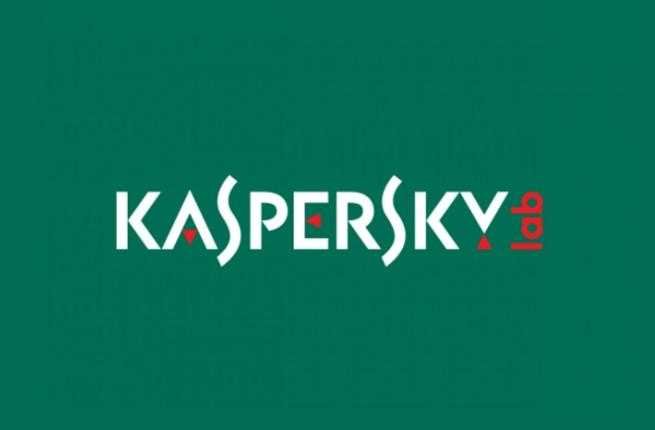H Kaspersky Lab παρουσιάζει τη νέα της λύση για περιβάλλοντα virtualization, η οποία παρέχει προηγμένη προστασία για πλατφόρμες virtualization της VMware, της Citrix και της Microsoft. Το Kaspersky Security for Virtualization | Light Agent είναι ήδη διαθέσιμο στην Ελλάδα.

The new light agent technology is Kaspersky Lab's first security solution optimized specifically for customers running Microsoft Hyper-V and Citrix XenServer platforms. Also, the new technology will offer customers with VMware platforms the ability to choose agentless or light agent protection. In conditions protection and performance, Kaspersky Lab's new light agent solution combines the best elements of existing agentless and agent-based security models for virtualization.
"Based on the research by Kaspersky Lab specialists, our mission is to educate businesses about the security risks associated with virtualization and to offer the best options to protect their network," said Andrey Slobodyanik, Managing Director of Kaspersky Lab for the Eastern European region.
"For every network, there is no security solution that suits all the needs and circumstances. Therefore, by offering a combination of security options for the three largest virtualization platforms in the world, Kaspersky Lab ensures that our customers are protected while at the same time deriving the greatest benefits from investing in virtualization, "he added.
Today, most of them Companies they must make a decision about the approach they will take to virtualization security. They will have to sacrifice either performance or security. Agentless security models offer performance advantages by performing any security-related work on a dedicated virtual appliance that is remote from the virtual machine. However, this limits the software's ability to perform advanced security management and network protection tasks on virtual terminals. Conversely, agent-based protection (ie, installing "standard" security solutions on each virtual machine) wears down computing resources – a situation that virtualization primarily tries to eliminate – and can slow down the pace of consolidation of virtual machines and of the overall return on investment of a virtualization project.
Problems such as the "instant-on gap" can cause serious issues for an agent-based approach. The instant-on gap is the "window of time" between the creation of a virtual machine and the moment when the last security update "descends" on each virtual machine. The virtual machine remains vulnerable until the updates are processed.
With the new light agent model of Kaspersky Lab, virtually the entire process of processing security solutions requiring intensive use of resources is carried out by a specific hypervisor virtual device. By channeling virtualised network and file data traffic through this upgraded device, virtual machines immediately enjoy full protection with the latest versions of security software at the time they are created. It also eliminates the need to promote unnecessary copies of anti-malware databases on each virtual machine across the entire network. Kaspersky Lab's smart scanning feature ensures that there is no multiple scanning of the same file, releasing more system resources. The new solution provides all security features offered by Kaspersky Lab's agentless solution, including heuristic file analysis and cloud-based information provided by Kaspersky Security Network, which provides information on emerging threats and malicious applications in real time.
Kaspersky Security for Virtualization | Light Agent includes a small software agent on each virtual machine. This approach is quite different from the traditional agent-based model, which requires commitment of resources. Thus, great security features are offered, allowing Kaspersky Security for Virtualization | Light Agent to make the most of Kaspersky Lab's know-how on security issues to protect a virtual network. In addition, this small agent can be implemented without reboot.
Kaspersky Lab will continue to offer Kaspersky Security for Virtualization | Agentless (currently available only for VMware environments), which is an effective solution for data centers or server environments that do not have access to the Internet, and for cases where the consistently high integration and auto-protection rate of each new virtual machine is utmost importance.
Using the Kaspersky Security Center management console, the users they can manage Kaspersky Security for Virtualization (both Agentless and Light Agent versions) on the same screen used for Kaspersky Lab's security solutions for physical machines. In this way, IT executives have a complete view of the physical and virtual network, as well as the ability to manage security issues and complete daily administrative tasks, without having to use different Interfaces.
Kaspersky Lab offers a single license for its virtualization security solutions. In this way, businesses that buy a license for Kaspersky Security for Virtualization can also access Kaspersky Security for Virtualization | Agentless and Kaspersky Security for Virtualization | Light Agent. Flexible licensing options allow businesses to purchase licenses either "per virtual machine" - based on the exact number of licenses required for virtual servers and desktop computers - or "per kernel" - based on the number of CPU cores found in virtualization hardware the customer's. These options offer businesses the flexibility they need to expand their network according to their needs.
More details about Kaspersky Security for Virtualization | Light Agent are available at e-mail address http://www.kaspersky.com/business-security/virtualization and Kaspersky Lab's B2B Security Blog.





